A new approach to urban health
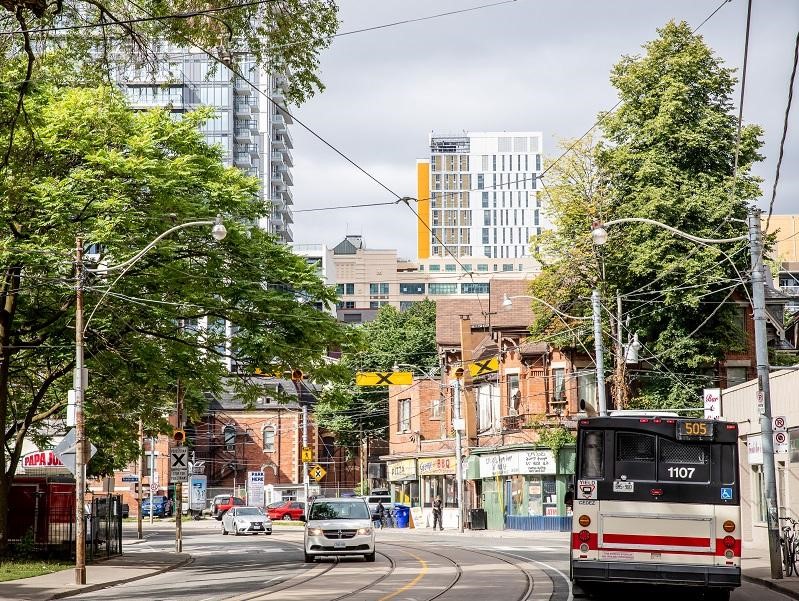
The PhD program in urban health launched in January this year at Ryerson with a class of five students. Delivered by the Daphne Cockwell School of Nursing, the program prepares graduates to become effective leaders in research, policy and practice.
Students are working across disciplines — including nursing, psychology, early childhood studies, and more — to create responsive solutions that advance the health and well-being of diverse urban populations.
From Indigenous mental health, to virtual care, to COVID-19 exposure in South Asian communities, students are exploring critical research areas related to health and well-being, safety and security, and migration, immigration and settlement.
Get to know the inaugural class of students pursuing doctoral studies in urban health.
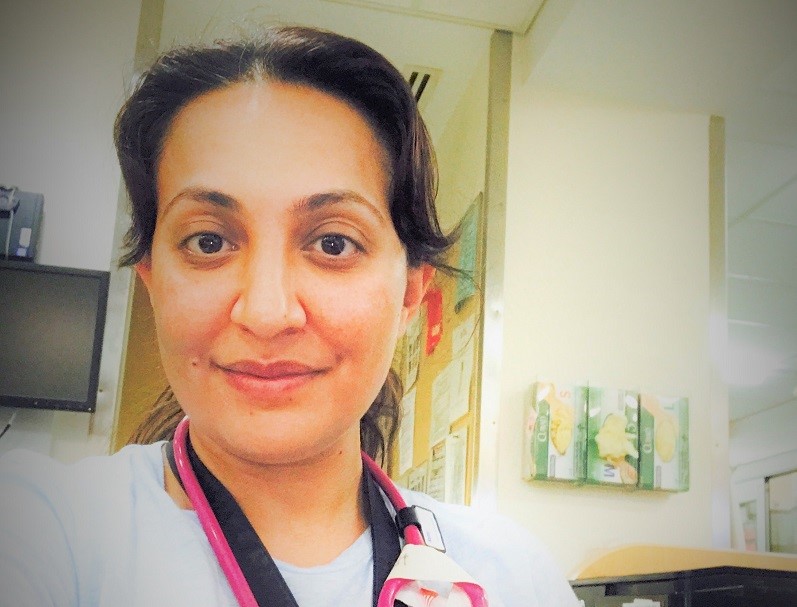
Tell us about yourself
I have extensive experience in nursing as a researcher, educator and practitioner. I began my career as a registered practical nurse, and continued my journey in nursing. After completing the Centennial College bridging to university nursing program I received a bachelor of science in nursing from Ryerson University. As I started practicing in a busy downtown emergency my desire for academia and nursing education grew. I wanted to address the complexity of my patients while being able to practice autonomously. I decided to become a nurse practitioner and obtain my master of nursing, nurse practitioner degree, with a global health focus, from the University of Toronto (U of T). I currently practice in the community as a primary health care nurse practitioner and in-hospital in an acute care emergency department. I also hold adjunct faculty teaching positions at Ryerson and U of T, and work as a research assistant with professor Sepali Guruge.
What area of research do you plan to pursue?
My practice in hospital settings with a predominantly white population and in community settings with a predominantly South Asian and immigrant population gave me a firsthand look at patient outcomes along social and racial lines. In the community, I noticed that immigrants, in particular, were experiencing poorer health outcomes: chronic conditions would develop and their health deteriorated as they migrated and settled in this country. My research will examine the influence of immigrant status, precarious employment, mental health, and social practices on COVID-19 exposure and infection of South Asian communities. I plan to consider these questions from a societal perspective, not only a medical one.
What do you hope to accomplish with your PhD?
A PhD in urban health will allow me to continue my practice as a nurse practitioner and a researcher and obtain a full-time academic position. My research in particular will help me to address disparities in marginalized communities and design interdisciplinary interventions that address social and medical dimensions of health. In addition to my interest in immigrant and marginalized population health, I have a passion for advancing nursing education and creating knowledge. A PhD will allow me to continue my role as a healthcare provider and an educator.
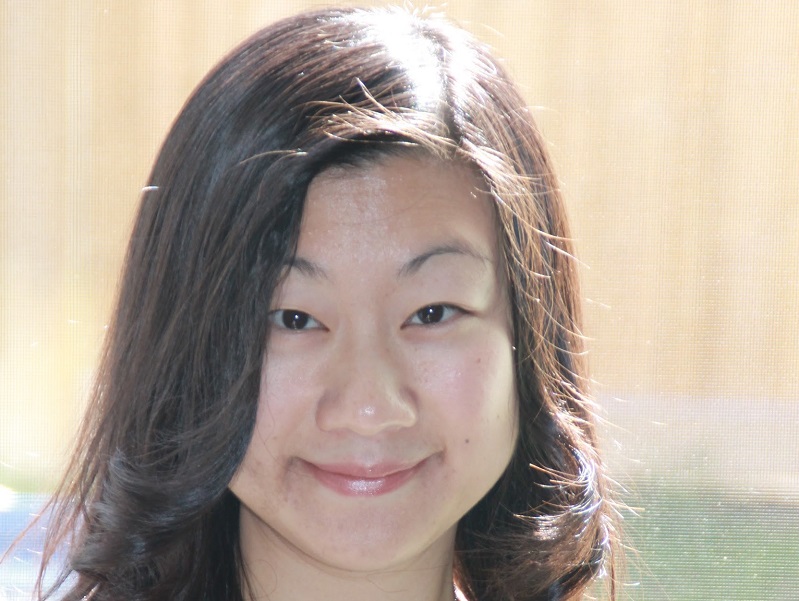
Tell us about yourself
Those around me shape who I am. I find joy in every aspect of relationships in my life of being a mom, wife, daughter, sister and friend. I enjoy coffee, baking to my heart’s delight, reading, and travelling. Professionally speaking, I am a registered nurse. Throughout my career, I have been touched by nurse mentors with their professional generosity; to them, I am grateful. I’ve practiced in various settings including at the hospital, as a research nurse in an academic setting, and in the community. Much of my nursing practice has been in the domain of public health. As a public health practitioner, I have had the opportunity to collaborate with individuals, families and community members in the areas of family health and chronic disease prevention. In recent years, I have been in the role of quality improvement specialist. In this capacity, I partner with incredible people and we immerse ourselves in activities that focus on quality of care and services. Additionally, I've had the pleasure to teach as a clinical instructor and contract lecturer at Ryerson University. This opportunity has provided me the intellectual and professional exchange, which I have found truly rewarding and invigorating.
What area of research do you plan to pursue?
My proposed research area will look at the virtualization of health service delivery. Heightened by the COVID-19 pandemic, virtual care has become increasingly prevalent. The expanded availability of virtual care conveys hope for and optimism in access to care. As virtual health services expand, we have to ensure that underserved populations are not left further behind. Rooted in my research will be the guiding principle that we narrow the gap, rather than further widen the range of health disparities. Moreover, examining quality of virtual care and its impacts on health and well-being are essential components of the research. The goal is to inform policymakers on policy directions about quality virtual service delivery, which must have safeguards built-in to mitigate risks of intensifying disparities. Here, we are presented with an opportunity to transform and improve health care, where connectivity can allow care to diffusely reach further geographic areas. I feel passionately that we must assess distribution of resources, proportionate to the degree of need. With strong governance and informed decision-making about virtual health services, there is the prospect of raising the health statuses of underserved populations.
What do you hope to accomplish with your PhD?
Engaging in doctoral studies is a meaningful milestone towards achieving my career objectives. These include gaining sound knowledge to conduct urban health research, building capacity to tactfully influence health and social policymaking, and positioning myself to facilitate population health improvement. I anticipate that the PhD journey will be filled with rich relationship building and collaboration. There’s much to be endeavoured! Although I am unsure where my professional journey will take me, I envision that I will toggle between academia and public health. I’d love to integrate quality improvement into nursing and health professional curriculum. I believe whole-heartedly in the value of health promotion and protection, which require a cross-sector, cross-disciplinary, and community-driven approach. I hope to contribute to research and policy advancements aimed at reducing urban health disparities and inequities. While there is much for me to learn and develop, I am also mindful of the need to give back. My hope is that my proposed research and development of my research portfolio can translate to meaningful contributions to society.
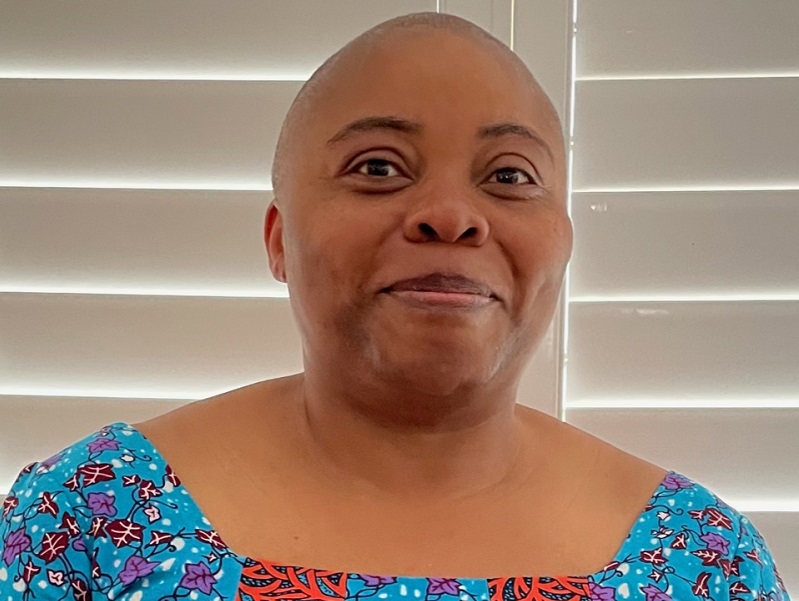
Tell us about yourself
I was raised in Lagos, Nigeria in a family of six children and many relatives. It was loud, boisterous and mostly fun, although … now I think about it, maybe not so much for the adults. I was exposed to more than two languages and cultures at home and immense cultural diversity in the larger community. This background continues to play a major role in who I am. After completing a bachelor’s degree in communication arts and working professionally in the telecommunications industry, I moved to the UK with my husband and began studies in early childhood education (ECE). Upon relocating to Canada as a landed immigrant, I joined the workforce as an ECE, including a five-year stint as an Ontario Early Years Centres Program worker in Toronto. I obtained a master’s in early childhood studies at Ryerson University and joined Cegep de St-Felicien as an ECE instructor, living and teaching in Inuit communities of Nunavik for seven years, with my long suffering husband. Founder and CEO of Early Childhood Development Initiative (ECDI), an international non-profit focused on fostering optimal early childhood development (ECD) for West African children both in Canada and West Africa, I also consult on ECD to UNICEF.
What area of research do you plan to pursue?
The urban health PhD program is very exciting for me as it unites various disciplines that must ideally collaborate in order to support positive health outcomes for urban populations. As an educator, focused on healthy early childhood development, this multidisciplinary framework is extremely pertinent.
My experience through the work that ECDI undertakes in the Greater Toronto Area (GTA), is that immigrant West African families often feel the need to put aside their culture, especially with regard to raising their children, in order to successfully settle and build a life for their families in Canada. Hence, I am interested in investigating the role of culture as a social determinant of health among newcomer West African families in the GTA. My assumption is that in suppressing their culture, families lose their core strength, which negatively impacts outcomes for their children, the general well being of the family as a whole and the physical health of the parents.
What do you hope to accomplish with your PhD?
Strengthening my knowledge base and capacity as a researcher and contributing West African voices to the existing body of literature to enhance health equity through uptake of knowledge into policy would be a major accomplishment achieved through this PhD program. I hope to also support culturally relevant health, education, and settlement interventions and help to strengthen cultural competence in community services education and frontline practice. I look forward to leading and contributing diversified and multidisciplinary research to enhance the capacity of health and community service professionals to build positive, meaningful relationships with the West African, and more broadly, the Black Continental African communities in Canada. I also eagerly envisage the opportunities to strengthen my contributions towards global early childhood development in my role as ECD consultant to UNICEF.
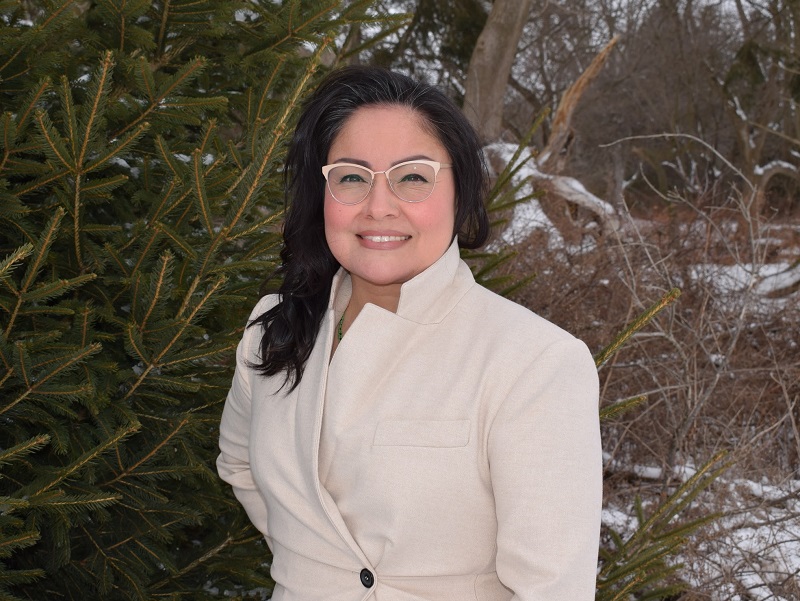
Tell us about yourself
I prefer to start by introducing myself in the custom of my people, the Anishinaabeg. Wawasay Guhmee Kwe Nindizhinaaz, Mishiikenh Nindodaym. Ojibwe-Lenape Kwe nindow. Bkejwanong Anishinaabe aki nindoonjibaa miinawa Deshkaan Ziibi Anishinabe aki nindoonji. Ni’mishoomisibunag Natawash miinawa Miskokomon.
In the English language, my original name is Shimmery Shiny Lake Woman and I am from the turtle clan family of people. I am from both the Ojibwe and Lenape speaking tribes of the original people of turtle island. I was born and raised on Walpole Island First Nation and now make my home with my family, relatives, and community at Chippewa of the Thames First Nation. My great grandfather on my mother’s side, Arthur Miskokomon was the son of hereditary chief Natawash, the son of hereditary chief Miskokomon.
What area of research do you plan to pursue?
I am committed to working with First Nations children, youth and their families and I aspire to continue strengthening community-based research practices with First Nations peoples. I value the practice of developing social policy through the voice of the people who are impacted most and wish to continue my research practices with a specific focus on children and youth voices. I intend to lead a respectful demonstration of how Indigenous worldviews provide for a meaningful framework to acquiring knowledge and knowledge renewal practices across a network of supports in health and well-being services.
What do you hope to accomplish with your PhD?
I am committed to my roles and responsibilities as Anishinaabe Kwe of recognizing, living and protecting mino bimaadziwin (good life) for and with First Nations children, youth and their families. I have lived experience and a respected understanding of how colonial influenced intergenerational trauma affects the lives of First Nations children, youth and their families. I aspire to continually ensure safety and protection for all First Nations children and youth. I believe it is necessary to recognize, live, and protect mino bimaadziwin as Anishinabe Kwe through the access of First Nations peoples’ epistemologies and ontologies. I hope to fulfill this responsibility by honouring First Nations children, youth and family voices through respectful engagement to strengthen social policies that better align with Indigenous ways of living and ways of knowing. Waywenni (in a good way).